Women carry out much of the labor in the coffee supply chain, from tending to the farm to processing and sorting, yet receive little compensation for their contribution and direct impact on the quality of the end product. Meanwhile, men overwhelming occupy positions of power in the chain where they are able to capture more of the value of the product, regardless of their labor contribution and potential to improve coffee quality or quality of life for the family.
Given this inequality, we believe that promoting gender equity is not only the right thing to do, but that there is a strong business case for investing in women for the benefit of the entire supply chain. Through our work supporting women farmers with
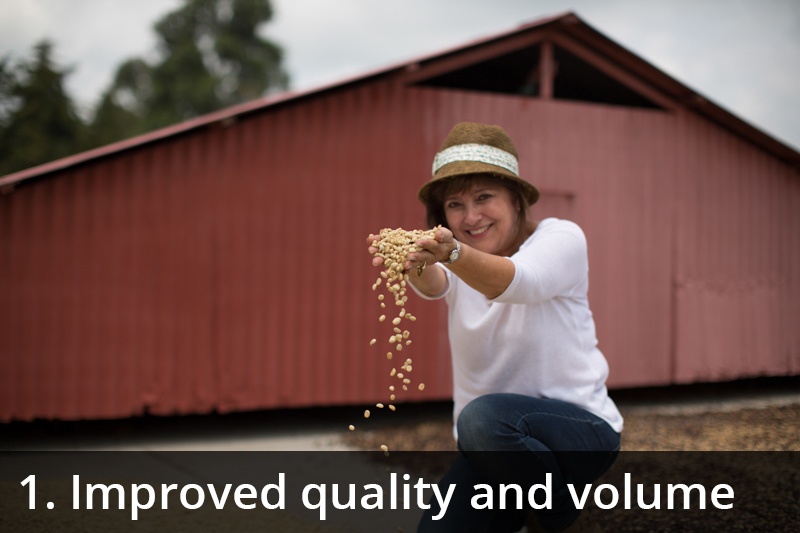
Equipping women with knowledge and skills in cupping and best production practices improves cup quality and volume. We even find that women-grown lots return a .5 point higher cup score than
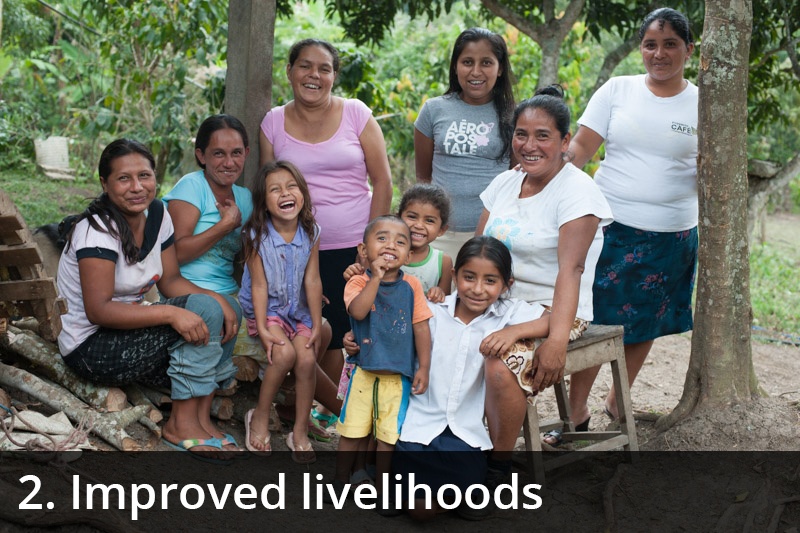
Increased value from coffee returning to women means greater investment in the family, leading to improved livelihoods. Studies show that women invest 90% of their income in the household, while men invest only 30-40%. This investment leads to
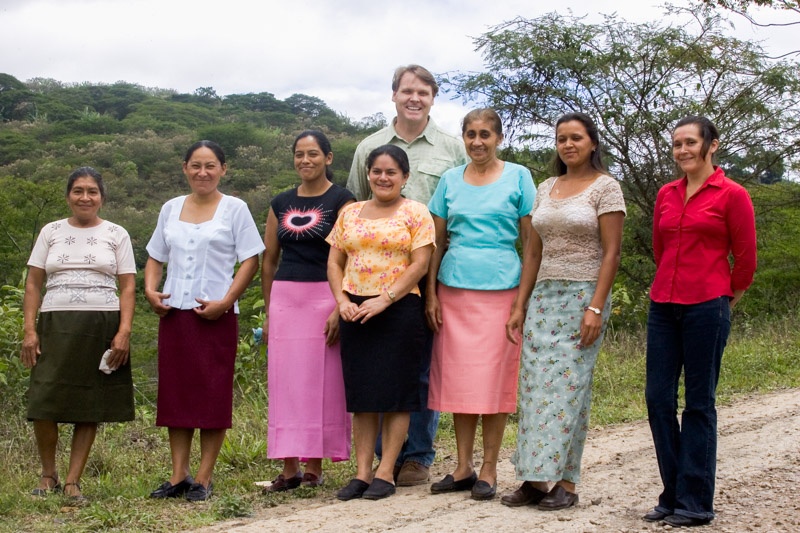
Our story of sourcing women's coffee begins in
With the success of Las Hermanas, we began to seek out and develop relationships with women growers from around the globe, and are fortunate to have developed particularly strong relationships with women farmers in Rwanda, Nicaragua, Guatemala, Honduras and Colombia that continue to grow. During that time, we've achieved some important milestones:
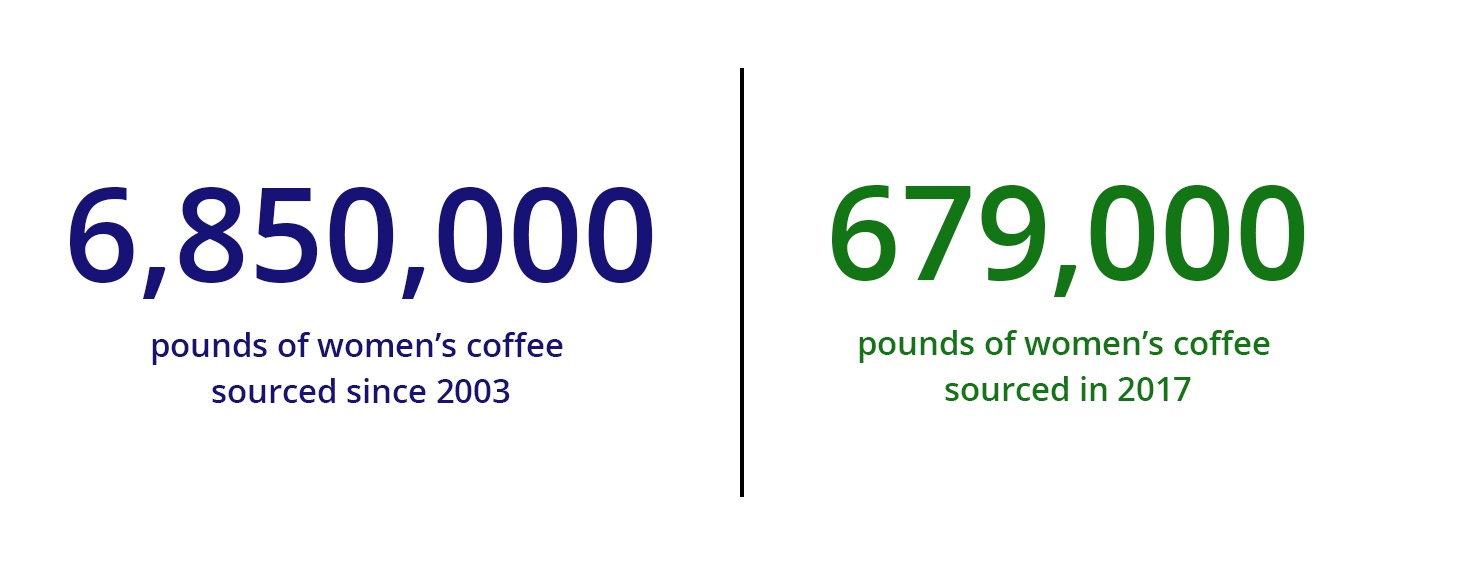
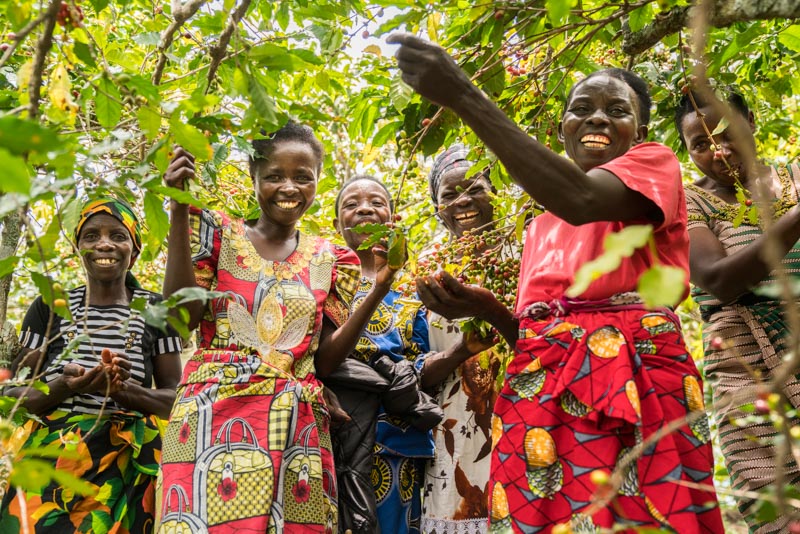
Below you'll find a collection of women's coffees you can buy on a forward book or spot basis, as well as information about our Double Your Impact coffees and cupping lab donation inititaive, which support women farmers in Rwanda through the Relationship Coffee Institute.
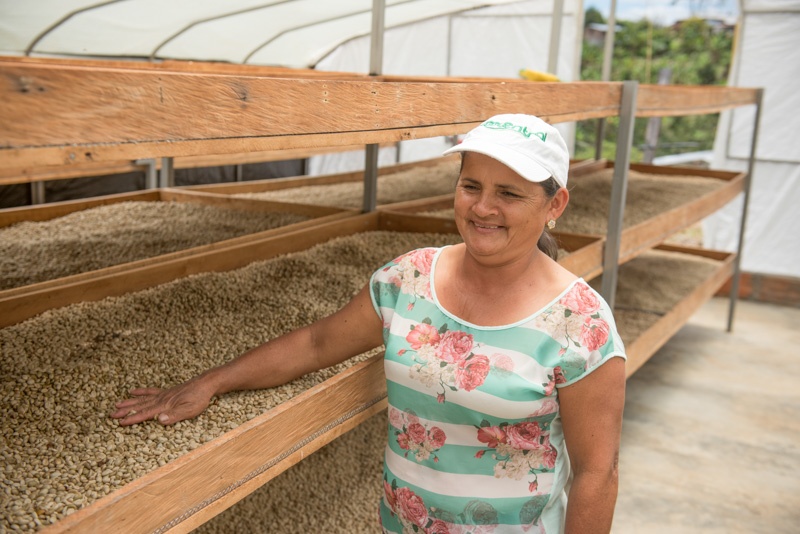
Coocentral’s Mujeres Cafeteras (Women’s Coffee) program started from an initiative to teach and empower 300 women coffee growers in the municipalities of Garzón, Pital, and El Agrado. Through Best Agricultural Practices training, the women learn technical skills in coffee harvesting, fermentation, and drying that they use to develop a differentiated cup profile with added value.
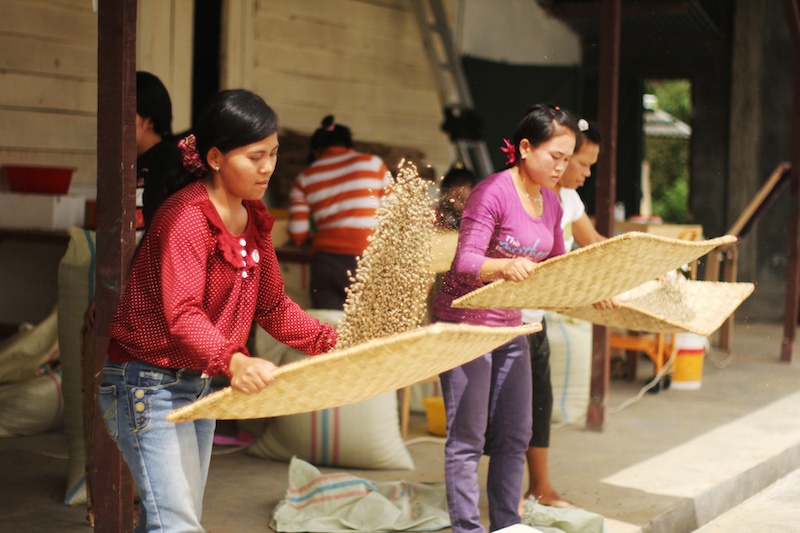
Among all the coffee collectors and community organizers for the Tiga Raja

Like many cooperatives, there was a time when Soppexcca struggled with its financial management. However, beginning in the early 2000s, a charismatic and inspiring leader named Fatima Ismael led Soppexcca from a state of debt and low member trust to one of the most successful cooperatives in Nicaragua with solid businesses practices, extremely transparent operations, and progressive initiatives to improve gender equality within the co-op.
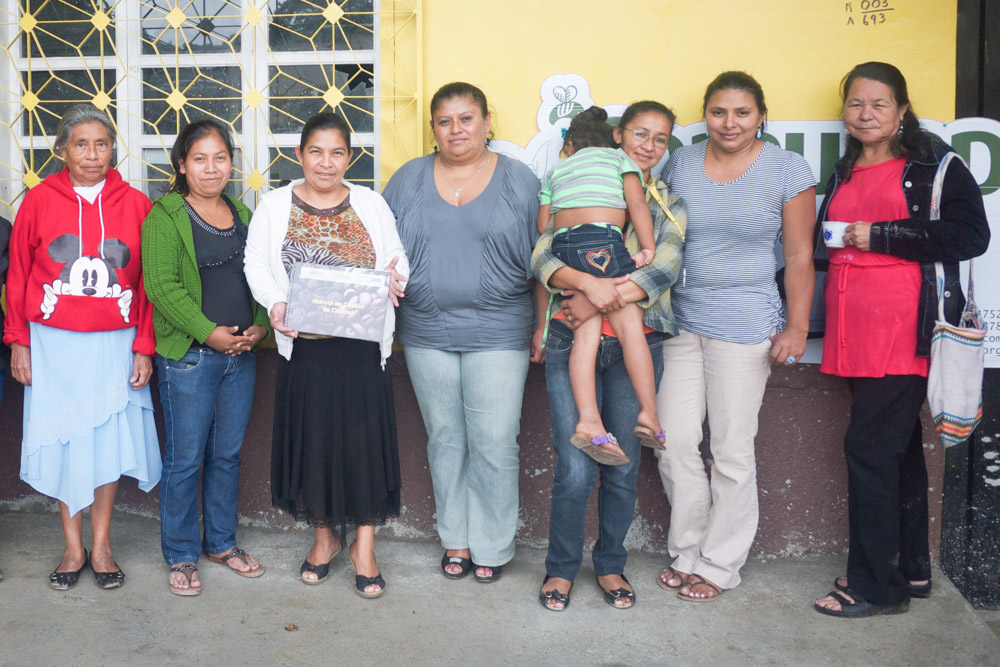
COMUCAP is an organization of women growers who formed their own growing collective after suffering from domestic violence and economic insecurity due to gender

RCI is currently seeking support to build out professional-grade cupping labs in Rwanda to improve market access and promote a shared language of taste between producers and buyers in the country. Learn more about the initiative in CoffeeTalk Magazine here, and make your donation to the initiative here.
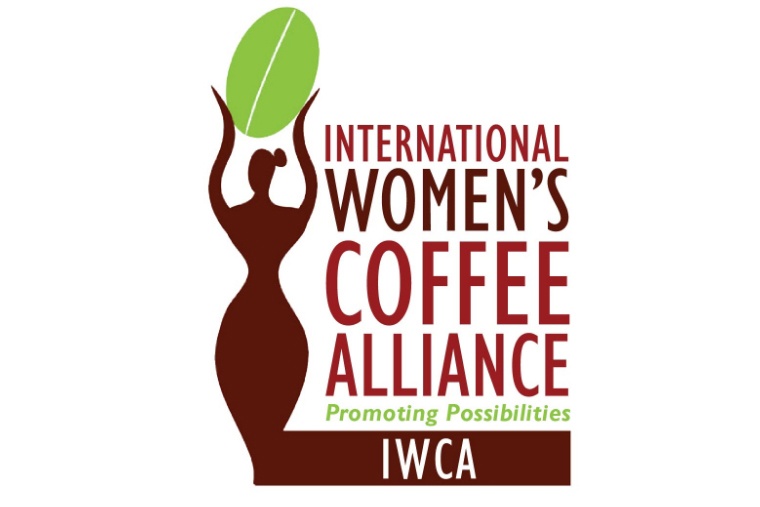
The International Women's Coffee Alliance (IWCA) leads women's empowerment in the international coffee industry by supporting and growing a network of self-organized, self-governing, women-led chapters across the globe. This International Women's Day, give a boost to their critical work by making a donation here.
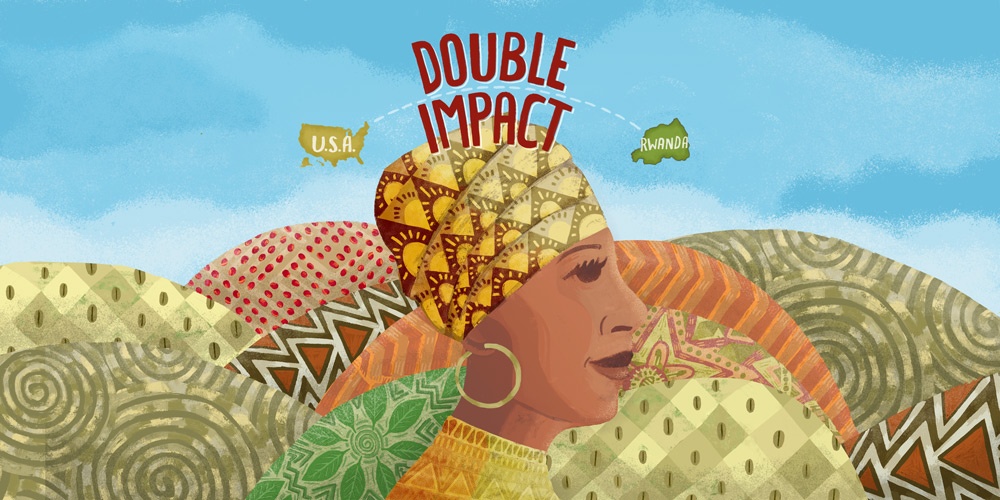
Through this special program, we're reinvesting all profits from 2017 Rwanda harvest coffees into Rwandan farmers through the Relationship Coffee Institute. Every purchase will not only provide growers with premium prices for their incredible

2303 W Commodore Way , Suite 204
Seattle, WA 98199
503-235-1119